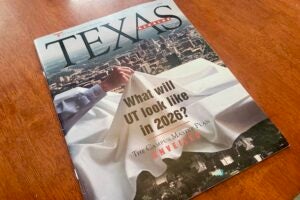As we look forward to holiday parties and dinners with family, some of us might have a little anxiety. There is political polarization in the air, and it seems we all are guaranteed to come into contact with people who voted differently than you did in the past election as well as people who chose not to vote at all.
For some, the initial reaction is to seek safe topics of discussion that will stay as far away from politics as possible. But I suggest people reconsider that strategy.
The polarization of our electorate reflects the fact that Americans live in silos. We spend our time talking to people we agree with. Our social media feeds reflect people and sites that are congenial to our existing views. As a result, we don’t understand how someone could believe differently than we do.
That lack of understanding is a big part of the problem. Until we can comprehend the viewpoints of other people, we can’t hope to find any common ground that will help to resolve the most difficult problems that face our country.
To create that understanding, though, we have to shift our mindset from trying to debate with the people around us to engaging in conversations.
Research on communication demonstrates that when people are having a conversation, they seek common ground. People have to cooperate in order to understand each other, and so they work to coordinate the way they think about the world in order to move the conversation forward. As a result of this effort, people leave a conversation thinking more similarly to each other than they did when they started the conversation — even if they continue to disagree on the surface about the topic under discussion.
As a result, conversation creates shared knowledge of the world.
In contrast, debate does not create common ground. A debate is explicitly about trying to win the argument, often in the eyes of observers rather than in the mind of the person you’re debating.
As a result, people often try to break common ground and to set their own terms for the argument. Debates about abortion volley between “choice” and “value of life.” Debates about access to guns break down on “gun control” versus “the Second Amendment.” The terms of these debates encourage polarization rather than common ground.
Of course, if you do choose to have conversations, you have to start by letting people talk about the issues they care about. And you have to listen to what they are saying.
It is hard to listen effectively. Language is imprecise. You have to fill in the gaps in what people are saying in order to interpret what they mean. Even a simple dinner table request like “Pass the salt” involves interpretation. The person asking wants the salt, believes it is near you, and believes you are capable of passing it.
Interpreting another person’s beliefs in a political conversation is even more difficult, because you are going to bring all of your own knowledge to bear on that conversation. It is easy to slip into a mode in which you infer your conversation partner’s motives and then start to argue. Those arguments are not productive, because your assumptions about other people’s beliefs do not match their own sense of their position.
Instead, more of us need to ask questions: What are their concerns? What are their frustrations? What are their hopes and dreams for the future?
And you can contribute in kind. What are your hopes and dreams? What are your fears?
In this way, you help yourself to understand someone else.
This holiday season may bring more of a chance to argue and bicker thanks to the recent election, but it is also an opportunity to find someone who thinks differently than you do. Then, just talk. Some may be surprised at how much common ground there is beneath the surface of political disagreements.
Art Markman is a professor of psychology and marketing at The University of Texas at Austin and founding director of the Human Dimensions of Organizations program. His latest book is “Brain Briefs: Answers to the most (and least) pressing questions about your mind.”
A version of this op-ed appeared in the Houston Chronicle, Austin American Statesman and the Waco Tribune Herald.
To view more op-eds from Texas Perspectives, click here.
Like us on Facebook.




